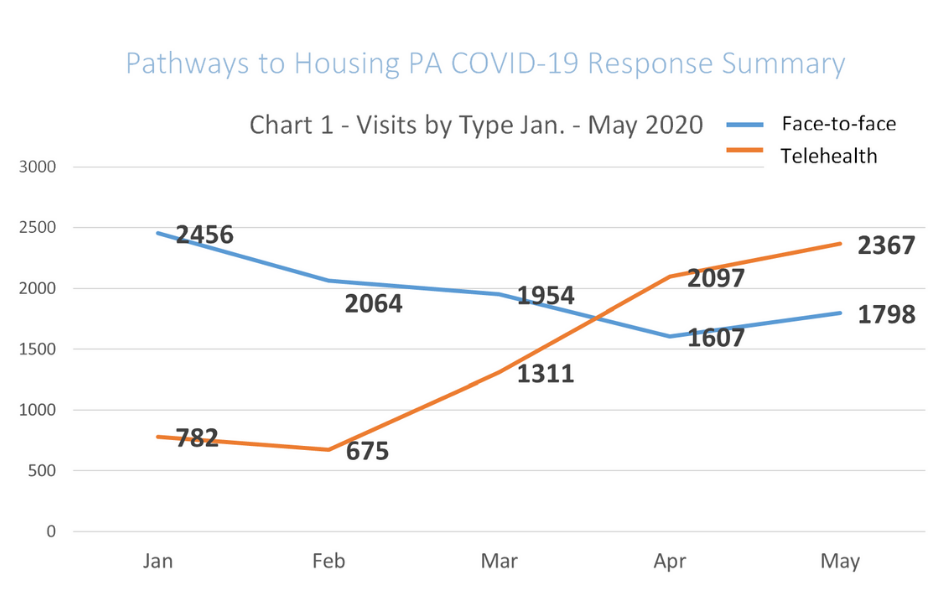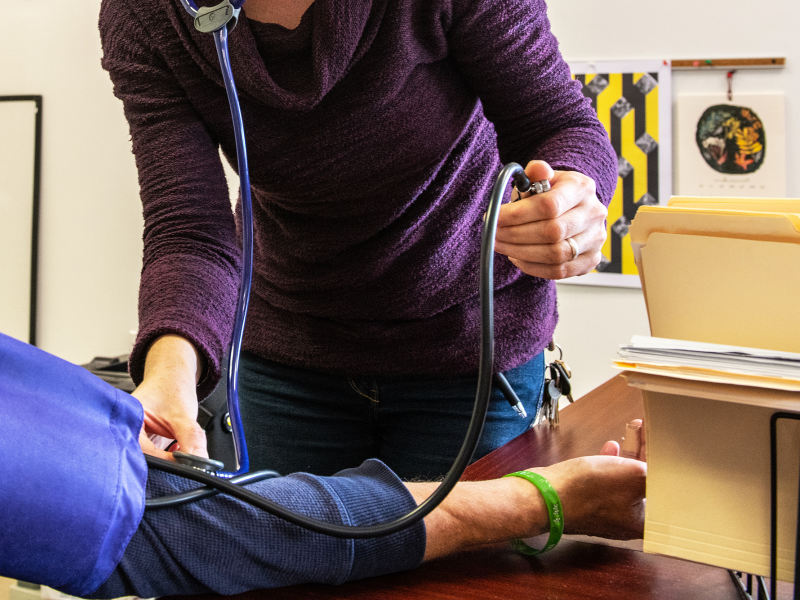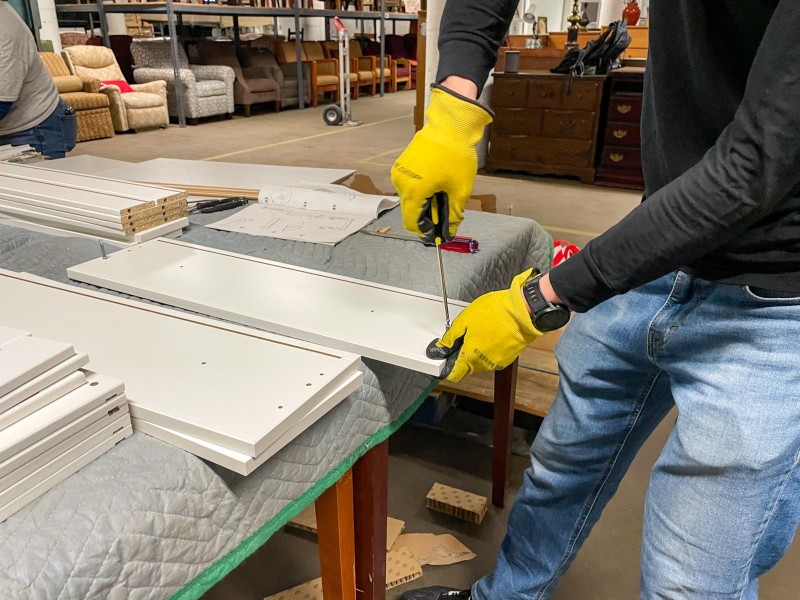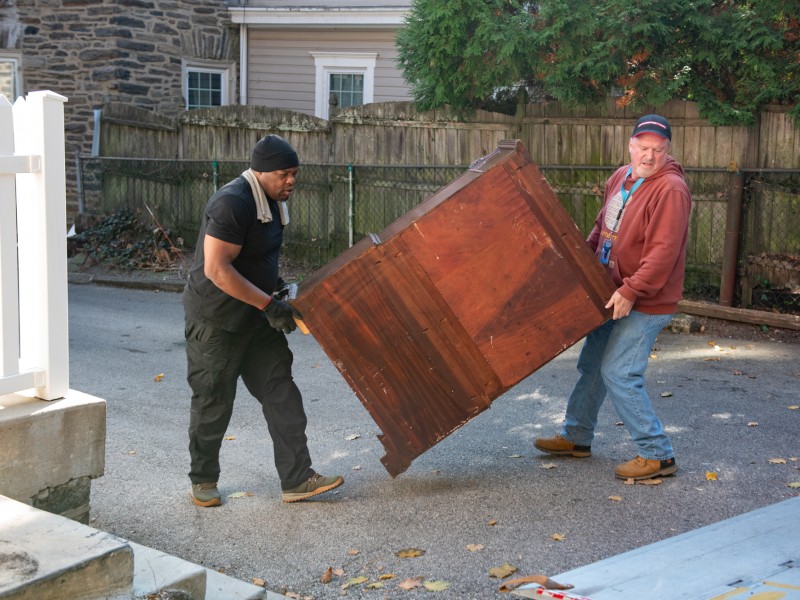Update on Our COVID-19 Response
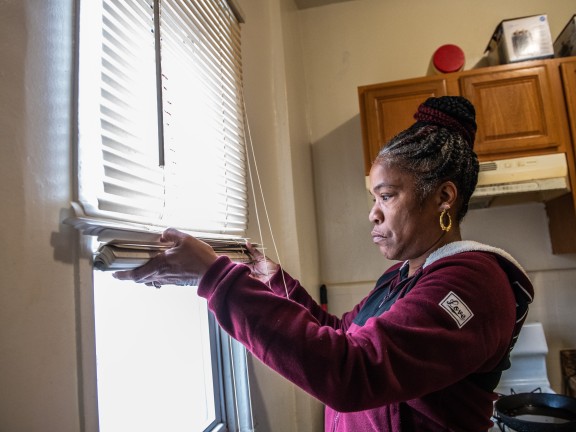
The COVID-19 pandemic impacted everyone, but especially those in vulnerable communities. In an effort to uphold our mission, Pathways to Housing PA implemented a multi-pronged approach to maintain services continuity, staff and participant safety, and innovate service delivery. The organizational principles that have guided our approach include:
-Sustain Operation and Services Continuity
-Prioritize Adaptation over Restoration
-Maintain Culture
Housing
We believe that offering participants the choice of where they wish to live supports their recovery from homelessness and investment in our program. It's an aspect of our model that makes Housing First unique but also effective. Previously we have transported our participants to apartment showings, however due to the COVID-19 physical distancing guidelines we had to change our normal procedures. In response, we take pictures and film our available units to allow participants to shop for their own apartments virtually.
As COVID-19 emerged, we were at the beginning of starting a new team. Despite the challenges that the team faced, Pathways was able to house 77 individuals who formerly experienced homelessness between March and June of this year. We are so thankful and grateful to our staff, funders, partners and stakeholders!
Virtual Visits, and Technology
In March, Pathways acquired Zoom licenses for all of our clinical teams and departments. We've been using Zoom to conduct daily clinical rounds to ensure that no participant falls through the cracks. We trained our staff on best practices to ensure that Participants experience a meaningful and therapeutic virtual visit. Our virtual work environment is supported by the implementation of a new intranet system that houses critical information for our staff. These efforts resulted in 28% increase in unique participant encounters from January to May of this year.
Integrated Care Clinic
Prioritization of Services Based on Clinical Need
Pathways categorizes participants across three tiers based on their clinical need, each tier has a different approach to care both in person and virtually. Tier 1 participants receive three contacts weekly, Tier 2 participants receive two contacts weekly, and Tier 3 participants receive one contact weekly.
Integrated Care Services
Pathways operates the only non-hospital based Opioid Use Disorder Center of Excellence (OUD-COE) in Philadelphia, in partnership with Project: HOME and Prevention Point. Our COE maintains medication-assisted treatment, recovery support services, and benefits coordination to 450 participants with opioid use disorder(OUD). We do this by providing virtual services where possible, and in-person services where necessary. These services are available to any Philadelphia resident with an OUD diagnosis.
We offer integrated primary care and behavioral health services through our Integrated Care Clinic. Our adaptations during COVID-19 includes maintaining onsite services where necessary, implementing a telehealth model, and conducting house calls for our most vulnerable participants. We also adopted a telehealth platform to maintain psychiatric and behavioral health services. Recognizing that some of our participants are impacted by the digital divide, we purchased 75 mobile phones to ensure access to services for our most vulnerable participants.
Community Inclusion and Advocacy
Voter Registration and Census Participation
While society was largely shutdown and throughout the rest of the pandemic, the Pathways teams ensure that participants have opportunities to participate in civic engagement and psychosocial supports. We use publicly available data to assess if our participants ware registered to vote at their correct address. When participants are unregistered or need to update their voter registration information, they are engaged in our voter registration drive. The drive resulted in a 61% increase in voter registration among our participants. In addition to voter registration, we also support participants with Census participation.
Virtual Social and Support Groups
We currently host 11 weekly virtual groups to support social and clinical engagements. Some of our groups are recreational (virtual bingo and hangman, etc.), while others are therapeutic (substance use recovery, recovery from homelessness, etc.).
Food Security
Early on we conducted a comprehensive food security assessment of our entire participant population. This included an assessment of who has SNAP benefits, income, are connected to local food banks, and/or receive meal delivery services. Where there are gaps, we expanded access to our internal food pantry. So far our teams have also delivered more than 600 brown bag care packages to food insecure participants that included, sandwiches, drinks, snacks, and Thinking of You notes.
Philadelphia Furniture Bank
Service Continuity and Technology
The Philadelphia Furniture Bank (PFB) continues to maintain all services throughout our COVID-19 response. Having the PFB open was essential to our community because it became imperative to help as many individuals and families move out of congregate living situations as possible.
All individuals and families working with the PFB are given the option of having virtual shopping trips to maintain physical distancing. If they opt for an in-person shopping experience the staff at the PFB take proper precautions provided by the CDC COVID-19 guidelines.
As the state of the COVID-19 pandemic evolves, Pathways to Housing PA will continue to evaluate and adapt our response and approaches to service delivery.
